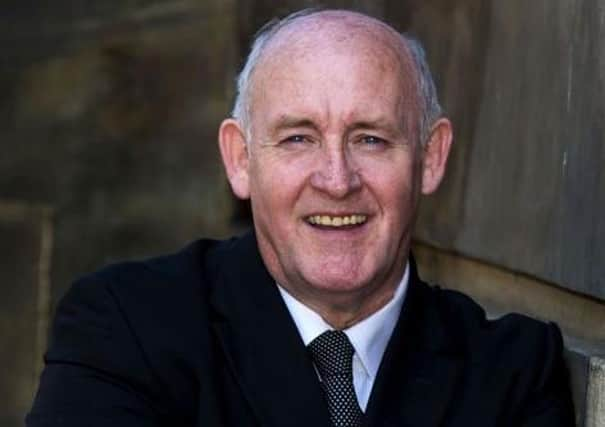Third sector needs help to recover from Covid – Ian Welsh


On 19 June, registrants for this year’s Edinburgh Marathon Festival received an unwelcome update. The event was to be postponed for a second time, to 2021.
Whilst recent weeks have seen strides in Scotland lifting aspects of the Covid-19 lockdown restrictions, the prospect of tens of thousands of people taking to the capital’s Tarmac any time soon always did seem unlikely.
Advertisement
Hide AdAdvertisement
Hide AdThe impact of this postponement, however, will be felt far beyond the individuals who were looking to bag a new personal best, or tick a lifelong goal off their bucket list.
Each year the two-day event raises more than £5 million for charities.
This is just a snapshot of the many thousands of fundraising events which have succumbed to the pandemic. Alongside wider impacts such as the closure of charity shops and other venues, the Chartered Institute of Fundraising has calculated that charities across the UK will face a £12.4billion shortfall in income for the year, due to the effect of Coronavirus.
These losses are undoubtedly impacting the ability of third sector organisations to help the people who need their support and, in some cases, they draw the very survival of these organisations into question.Strikingly, recent research across the third sector in Scotland has highlighted that half of charities think they will run out of funds in six months.
The timing of this funding crisis is significant too. Many member organisations of the Health and Social Care Alliance Scotland (the ALLIANCE) report unprecedented levels of demand for their support and services, asdisabled people, people living with long-term conditions and unpaid carers, turn to them for information and assistance.
For example, Chest Heart and Stroke Scotland has seen demand for its Community Support services spike by 80 per cent, whilst Crohn’s and Colitis UK has reported a fourfold increase in demand for its helpline services.
Our organisation recently worked with more than 30 national health and social care charities in Scotland to highlight these challenges, and call for mitigating action to be taken.
In a letter to the First Minister, co-signed by organisations including Alzheimer Scotland, Carers Scotland, Mental Health Foundation Scotland and Diabetes Scotland, we outlined why the creation of a ‘Third Sector Recovery and Renewal Fund’ for national third sector health and care organisations is a necessary investment in progressing a sustainable model of integrated care for the future.
Advertisement
Hide AdAdvertisement
Hide AdThis crisis has again demonstrated the value and reach of the third sector, a point acknowledged in the recently published report of the Advisory Group on Economic Recovery. “Given the risks, it seems clear that if a different approach to the sector is not built into Scotland’s recovery plans, it will not be able to carry on as it has in the past. Without support and investment, it might not survive. So we think that it is essential to put the third sector at the heart of planning for recovery and renewal, recognising its critical contribution to the goal of a wellbeing economy in Scotland.”
As the Community in Action features on our website, profiling Covid-19 responses of third sector organisations, have shown, charities have been quick in taking steps to adapt their service delivery models to the needs of this new normal.
Overnight, RNIB Scotland moved from running dozens of face-to-face groups to finding ways for blind and partially sighted people to maintain opportunities to connect whilst being socially distanced. Macmillan Cancer Support’s Volunteering Hub rapidly shifted from face-to-face to telephone and online support, reducing risks for many of their 130 volunteers who are older people and/or shielding.
But these valuable assets need further help and support if they are all to go the distance.
Viewers of the daily Covid-19 briefing sessions from St Andrew’s House will be no stranger to the clear connection that the First Minister has stressed between ensuring public health and creating a sustainable economic recovery.
As Scotland progresses through and out of this public health challenge, it is critically important to consider how we sustain this sector. Contributing hugely to Scotland’s wellbeing economy, it is an integral part of our national economic recovery. It needs support now.
Professor Ian Welsh OBE, Chief Executive, Health and Social Care Alliance Scotland
Comments
Want to join the conversation? Please or to comment on this article.